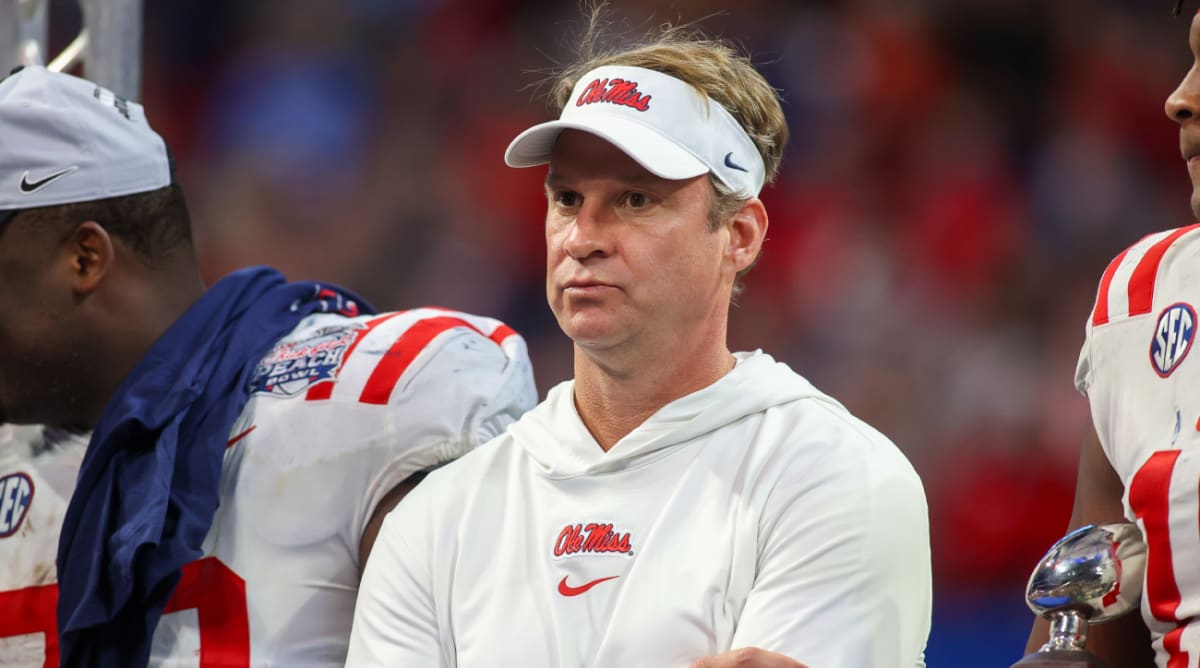Lane Kiffin is as stalwart a critic of the current realities of college football as you’ll find, but on Wednesday he admitted he and Ole Miss have benefited from the sport’s current landscape as much as anyone.
When Kiffin was asked whether he now has a good handle on how to build team chemistry amid constant roster turnover spurred by the transfer portal and NIL, the Rebels coach was frank.
“Yeah, I think I did. And then they made unlimited transfers,” Kiffin said at Wednesday’s spring practice press conference in Oxford, Miss.
A December court decision by district judge John P. Bailey prevents the NCAA from enforcing transfer rules, allowing players to transfer multiple times and play immediately. After initially granting a 14-day temporary restraining order in the case, Bailey later issued an injunction through the end of the 2024 spring sports season.
“So, there was a system that the NCAA put in place. I said in the SEC meetings, in college football with regards to the portal, NIL is a disaster,” Kiffin continued. “I said that last year, and then they really changed a major thing in the system. And now everybody can transfer multiple times. So that creates really different ways of going about this. And now you’ve got to worry about losing all your guys multiple times, twice a year because as of now there’s two windows.
“So I think that you could have had a plan, and maybe you could say our last year plan worked well because we won 11 games and were very portal-heavy. And now you got to adjust again.”

Brett Davis/USA TODAY Sports
The current system has been good to Ole Miss for the most part, at least in the record books. Quarterback Jaxson Dart, who recently took advantage of NIL rules by becoming the first college football player to ink a deal with a private jet company, transferred in from USC. The team’s top three wide receivers a year ago, Tre Harris, Dayton Wade and Jordan Watkins, came from Louisiana Tech, Western Kentucky and Louisville, respectively. Jared Ivey, the team leader in sacks with 5 1/2, began his career at Georgia Tech. John Saunders Jr. and Daijahn Anthony, who shared the team lead with three interceptions apiece, previously played at Miami (Ohio) and Liberty.
This offseason, the Rebels added top-ranked Texas A&M defensive line transfer Walter Nolen, South Carolina wide receiver Juice Wells and a host of others in college football’s top transfer class.
It cuts both ways, though, for every college football program. After rushing for 1,158 yards and 15 touchdowns as a sophomore following a school-record 1,567-yard season in 2022, running back Quinshon Judkins left Ole Miss and transferred to Ohio State.
Kiffin acknowledges that the Rebels have benefitted overall from the chaos created by the current rules and will continue to adapt as the NCAA tinkers with a system that he continually calls a “disaster.” In a Tuesday interview with On3, he said the sport would be better served by making players employees with “real contracts that everyone can see,” along with revenue sharing and perhaps even a salary cap.
“I know it sounds strange, because—I would take this out of it. I’m the first to admit Ole Miss, as much as anybody, benefits from the transfer portal and the system,” Kiffin said at his Wednesday presser. “And I’m telling you, even with that, how much it helps us personally, it is a disaster. And it got worse. So it is what it is. We’ll just always continue to adjust as they continue to make the system worse.”



.jpg?w=600)



